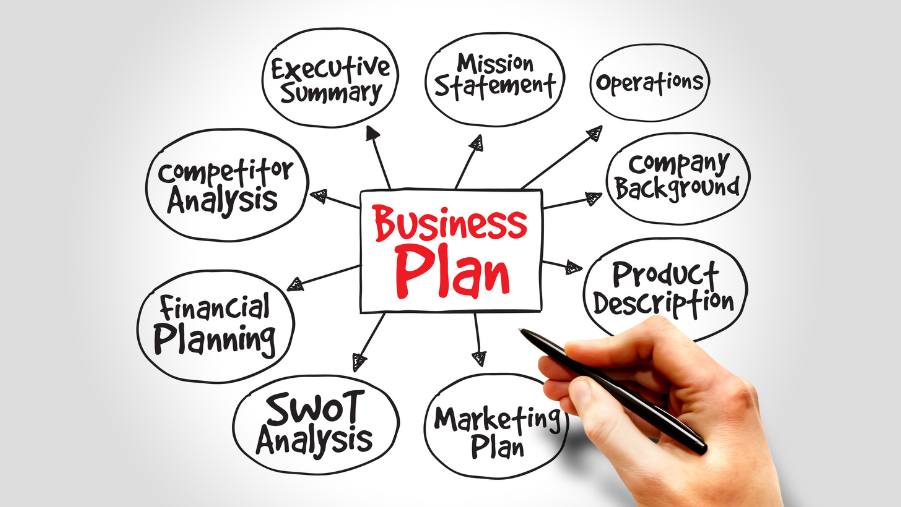Monday, 6 November 2023
Creating & Writing a Business Plan
Writing a business plan is a fundamental step for any aspiring entrepreneur or small business owner. It serves as a roadmap for your business's future, outlinin...
Writing a business plan is a fundamental step for any aspiring entrepreneur or small business owner. It serves as a roadmap for your business's future, outlining your goals, strategies, and the steps needed for success. Whether you are just starting your venture, seeking funding, or looking to drive your business to new heights, a well-crafted business plan is an invaluable tool. As a leading provider of business advisory services, we understand the importance of a well-structured business plan and are here to help you in creating yours.
Why You Need a Business Plan
Before delving into the process of writing a business plan, let us understand why it is essential. A well-crafted business plan is your roadmap for success. It outlines your business goals, strategies, and the steps required to achieve them. Here is why it is crucial:
1. Clarity:
A business plan provides clarity about your business idea and objectives. It helps you define your goals and the path to reach them. Read more about what to consider when setting up a business.
2. Guidance:
It acts as a guide, steering your business in the right direction. Having a plan in place ensures you stay on course.
3. Funding:
If you are seeking financing from investors or lenders, a well-prepared business plan is necessary. It demonstrates your commitment and understanding of your business.
Now, let us delve into the process of writing a simple business plan. 
Writing a Business Plan
1. Executive Summary
The executive summary is the first section of your business plan, but it is typically written last. It provides a concise overview of your business and its future. Include key information about your company, such as its mission, vision, and the problem it solves. Mention your target market and your competitive advantage.
2. Company Description
This section goes into more detail about your business. Describe your company's history, its legal structure, and its current status. Explain your products or services and the needs they fulfil. Provide information about your target market and your business's unique selling points.
3. Market Research
In this part, demonstrate your knowledge of your industry and market. Include data about your market size, potential for growth, and the demand for your products or services. Analyse your competitors and highlight your strategies to outperform them.
4. Organisation and Management
Outline your business's structure, including details about your management team. Describe the key roles and responsibilities of team members. If your business is a one-person operation, detail your qualifications and experience.
5. Products or Services
Explain what you are selling in detail. Highlight the features and benefits of your products or services. Share information about your suppliers, production process, and any intellectual property rights.
6. Marketing Strategy
When writing your business plan, describe your marketing and sales strategies. How will you promote your business, attract customers, and generate sales? Discuss your pricing, advertising, and sales channels.
7. Funding Request
If you need financial support, outline your funding requirements. Explain how you will use the funds and provide a clear financial plan. This includes financial projections, such as income statements and balance sheets.
8. Financial Projections
Present your financial forecasts. This includes your projected revenue, expenses, and profits for at least the next five years. Make sure your projections are realistic and based on thorough market research.
9. Appendix
Any additional information, like resumes of key team members or detailed market research, can go in the appendix. This section is for supplementary materials that support your business plan.

While a comprehensive business plan can be quite extensive, creating a one-page business plan is a practical way to add structure. You can easily find templates for such concise business plans online to guide you in the process. Simply do a quick Google search and you will find lots of free templates to assist you. Writing a business plan can be simplified for a small business. Focus on the most critical components, such as the executive summary, company description, market research, and financial projections. This streamlined approach ensures that even small businesses benefit from a well-structured plan.
Creating and writing a business plan is an essential step on your entrepreneurial journey. It provides clarity, and guidance, and is often a requirement for obtaining financing. Whether it is a detailed plan, or a simple one-page plan, the key is to have a well-thought-out roadmap to success. Ready to take the next step in your business journey? Reach out to Cronin & Co for expert guidance and business advisory services. Visit our website to learn more about how we can support you today.




